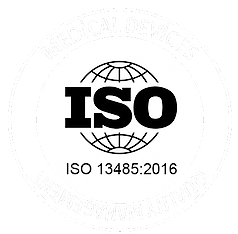
Raising money for a medical device startup is difficult. Our friends at Avio MedTech Consulting shed a unique light on these challenges, based on interviews with over 100 venture capitalists (VCs). Their blog post, Why Investors Say No to Medical Device Startups, identifies 12 key factors that often deter investors.
While all 12 points have their merits, we take a deeper dive into four critical areas that frequently impact early-stage medical device companies in our experience.
Insufficient Team Experience
A proven track record is crucial. Investors prioritize experienced teams that can effectively execute their vision.
Nocturnal’s Deep Dive
Many startups assume they must build an entire team in-house before they are ready for investment. This often leads to delays, increased costs, and gaps in expertise. Instead, startups should embrace a networked approach—leveraging expert advisors, contract development partners, and even crowdsourced problem-solving to efficiently fill skill gaps.
Showing investors that you know how to build the right expertise around your product—even if not all of it is internal—can make a significant difference in their confidence in your team’s ability to execute. Crowdsourcing technical expertise, regulatory strategy, or market research can help startups demonstrate agility and resourcefulness—two qualities investors value highly. Being able to access expertise without the overhead of a large team can also make a company more financially sustainable in the early stages.
For more on how startups can leverage external expertise to accelerate growth, check out this blog: "Crowdsourcing: A Startup’s Secret Weapon for Accelerating Innovation and Growth".
High Regulatory Hurdles
Successful medical device startups prioritize regulatory strategy from the very beginning of the design phase. Understanding the device's regulatory classification, testing requirements, and reimbursement landscape is crucial, as it shapes product development and business models to align with investor expectations. Startups that can confidently articulate their regulatory plan, including timelines and risks, significantly increase their chances of securing funding.
Engaging regulatory bodies can be helpful in smoothing the path to approval, but it can also create challenges if not done right. For example, the FDA Q-submission process can provide valuable feedback through Pre-Submissions and Informational Meetings, which can help guide the product’s regulatory strategy and development path. With the proper guidance and preparation, this FDA feedback can be extremely valuable for complex products such as implantable devices. At the same time, premature exposure without a solid plan for what is being proposed and what feedback is desired can be counterproductive and risky.
Last but not least, startups should look beyond the standard PMA and 510(k) regulatory pathways. While these are the most well-known FDA programs, there may be other, less common options that are more suitable, including programs designed to expedite device approval.
For more insights on these programs and how to avoid regulatory pitfalls, read this blog: "Five Costly Mistakes That Can Sink Your Device Startup – Part I".
Insufficient Financial Projections
Financial projections demonstrate the resources needed to create value. Assumptions and analysis are more important than the specific numbers. Investors want to know how your business will make money and what it will cost to get there.
Nocturnal’s Deep Dive
A common financial mistake startups make is failing to plan for the true cost of development and commercialization. Early financial models often underestimate product development costs, leaving companies short on funding at critical milestones.
Rather than projecting an optimistic timeline with vague cost estimates, successful startups take a milestone-based budgeting approach.
The ideal milestone acts like a golden ticket, providing enough evidence of progress to secure the next round of funding. But it also needs to be achievable within the startup's limited resources.
Partnering with a design and development company that provides milestone-based fixed cost pricing can mitigate the risk of exceeding product budgets.
For more details on financial planning pitfalls, read this blog: "Five Costly Mistakes That Can Sink Your Device Startup – Part II".
“This was my first experience with milestone-based pricing, and I will never go back to hourly billing. Nocturnal’s process ensures all parties are fully aligned and incentivized for success, and the results speak for themselves."
Alex Cooper, CEO, Relief Cardiovascular
Lack of Investor Confidence
Investors need to believe in both the startup’s potential and the team’s ability to deliver. A lack of confidence can stem from poor execution, unclear messaging, or a failure to address major risks.
Nocturnal’s Deep Dive
Medical device startups often believe their challenges are entirely unique, leading them to try to create everything from the ground up. However, there's a difference between true innovation and simply 'reinventing the wheel.' Leveraging proven product designs, manufacturing processes, regulatory strategies, and clinical trial plans can provide a strong foundation and save valuable time and resources.
Often overlooked is the fact that much of the necessary know-how is transferable between different devices and medical fields. For example, power management, signal acquisition, energy delivery, and data communication are common challenges in cardiac and neuromodulation devices as well as wearables.
While these components require specialized features and can't be bought off-the-shelf, they often rely on technologies already tested and proven in other devices. Identifying where these existing technologies and expertise can be used and adapted can significantly lower the cost, time, and risk involved in product development.
“The scalable software platform developed by Nocturnal demonstrated its capabilities for supporting our expanded product roadmap, and using off-the-shelf computational hardware has kept product costs competitive.”
Bruce Ferguson, MD, Chief Medical Officer & Co-Founder, Perfusio
Final Thoughts
Raising capital as a medical device startup is challenging. Investors are looking for more than just an exciting idea—they want your startup to demonstrate you are prepared for the realities of medical device development:
- Assemble the right expertise—whether in-house or through external networks.
- Develop a regulatory strategy early to avoid costly delays.
- Create financial models based on realistic, milestone-driven projections.
- Clearly articulate your path to market and risk management strategies.
By addressing these critical factors early, startups can not only increase their chances of securing funding but also set themselves up for long-term success.
Additional Resources
MOST READ POSTS
Insights from a decade of milestone-based projects
Transforming biosignals into clinical insights
Why investors say No to medical device startups


